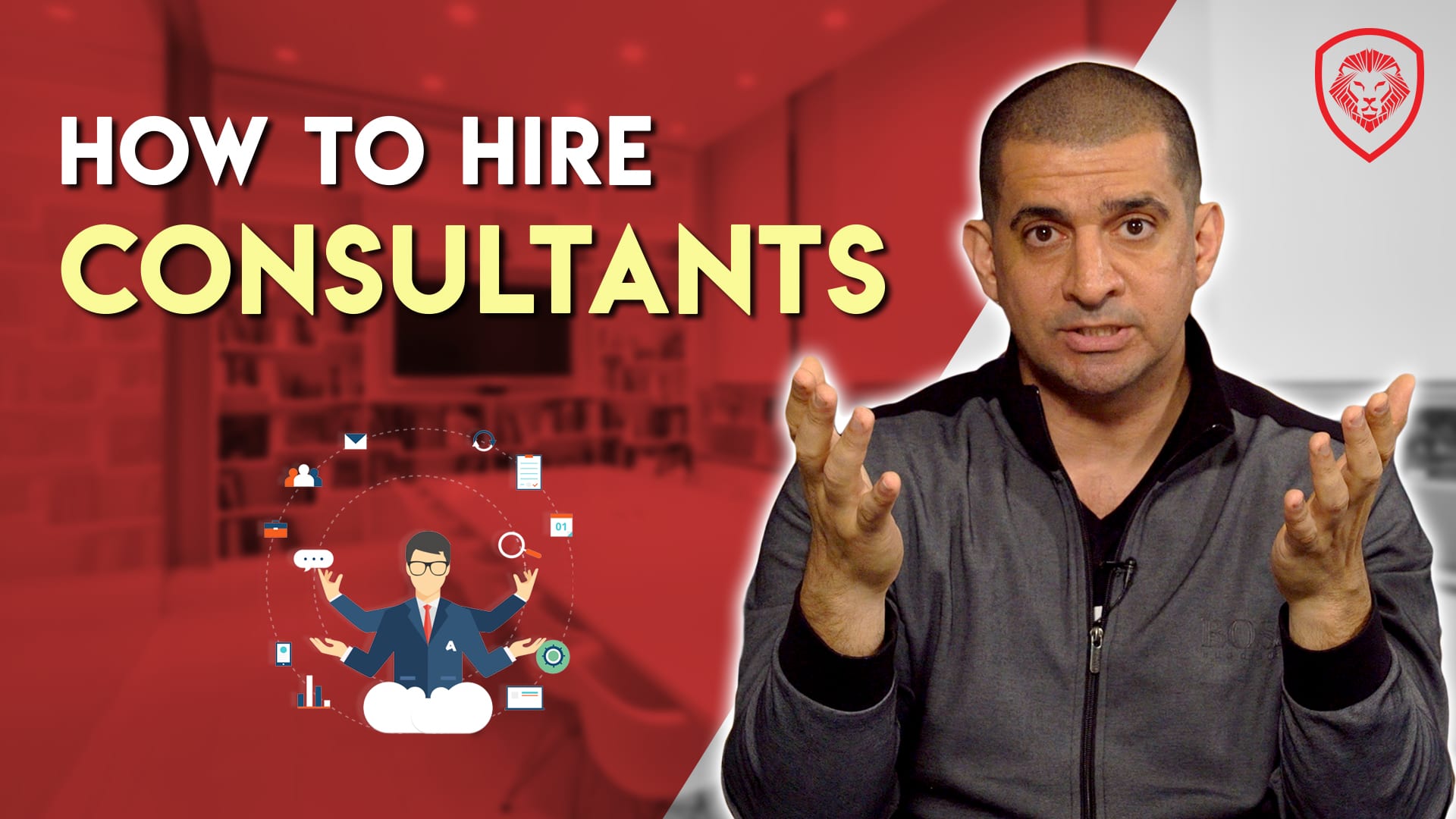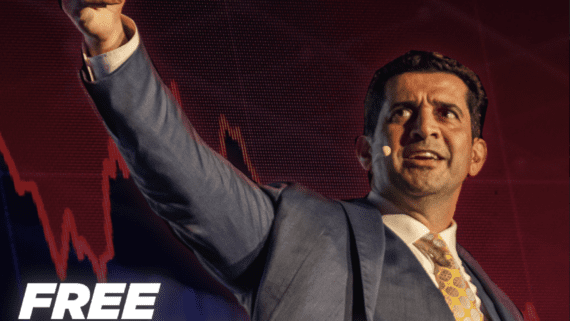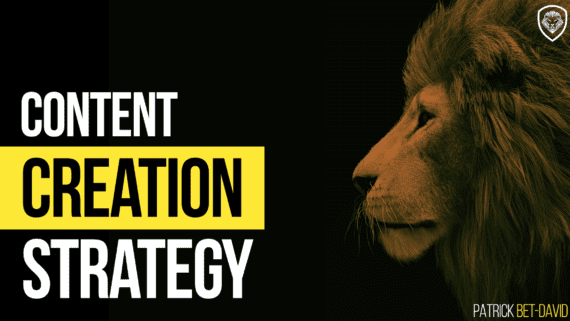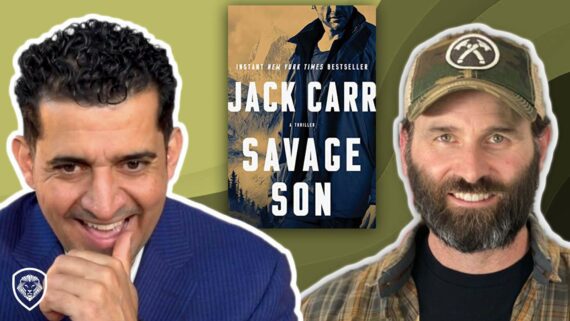10 Tips To Hiring Consultants & Lawyers As An Entrepreneur
As a CEO, founder, and entrepreneur, I spend millions of dollars on attorneys, CPAs, engineers and consultants. I have a lot of horror stories. When I hire any of these professionals now, it’s a whole different conversation. Today I’m going to give you 10 questions you need to ask every consultant before you hired them.
I want to share a story that happened recently. A woman came in and started pitching us what she could do for our company and what we needed. So, I started asking these questions of her and she started kind of balking a little bit and getting a little nervous. I looked at my team and realized we need to discuss a few things even before we think about hiring her as a consultant. I asked her to step out for a moment while I addressed this with my team. The main point we needed to address was the fact that we don’t even have a specific outcome of what we’re trying to do before we hired this person.
So, we got to get clear on our outcome before hiring the consultant, because if you don’t have that in place, they’re going to triple the workload. Consultants are hired so you can throw problems at them and if you aren’t clear how are you going to use them efficiently.
Plus, these consulting firms love throwing numbers your way to trigger your fears. They will tell you if you don’t hire them your business will fail. They will show you all sorts of numbers and charts supporting this idea. “If you don’t get this working right, you could get sued and I’ve seen companies go out of business.” The best way to combat it is to relax, anticipate and prepare for your needs. Most important thing before hiring any of these professionals, you got to get very, very crystal clear on what you want. Even before asking these 10 questions, you got to get clear what you want.
10 Questions to Ask Consultants Before Hiring
-
Before you give us advice, what makes you an expert?
Where did you work at? What did you learn? What have you seen? What have you built? How high did you move up in your career before you chose to become a consultant? There are different kinds of consultants. Some consultants work for a company for a while, burn out, and they don’t want a W-2. I literally had a consultant that takes a few clients per year and doesn’t care about becoming a millionaire. He’s good with that.
Some consultants got fired because they were not the best of employees and they went through a lot of different companies. These are the ones you’re trying to filter out. You want the workers that are going to do their part when they work with you. In order to find those people, you need to see where their credibility comes from.
-
Why did you become a consultant?
I want to hear why they became a consultant. “Well, I became, because I saw so many different companies being taken advantage of.” This is the time for them to give me some stories. Like whatever they say, whatever answer they give, ask follow ups. Why? Why is that? You got to go deeper to see if there’s any areas where you’re like, “Ah, no way in the world we’re going to spend $180,000 on you.” Now, I don’t even need to go through the rest of the questions cause I’m clear. Show me your career story and let me see if you align with our values and needs.
-
What is your experience with a company like ours/this particular issue?
Sometimes consultants may have had success with a company trying to solve an issue that has nothing to do with the issue of trying to solve. It’s almost like going to a dermatologist, trying to ask about your lungs. The same goes with consultant. A consultant can’t be amazing at solving every one of your company’s problems. Drilling down to your specific needs and their specific qualifications will save you time and money. “You were recommended to us by this place and we would like to know, what specific expertise you have in solving this issue?”
-
Tell me about the most successful client you’ve ever had.
They’re going to tell you their story and throw some numbers at you, which none of it you can measure. They have an NDA preventing you from seeing the data. So how you get around all of it is ask for their three best stories of clients. Then you ask if it is okay to call these clients. They’re either going to give you a yes or “Well, you know, you can’t contact them because…” That’s a red flag for me. Ideal candidates tell you “Yes you can call them, talk to the CEO or the CFO. I worked closely with these people.” Then you go do your research. Again, you’re hoping they’re right. You’re not trying to see if they’re wrong.
-
Name three clients that you had that ended up becoming a failure.
Most CEOs founders have a hard time asking this question. The best way to preface the question is by saying, “We’ve been in business for a while and we do a lot of things right. But God knows we’ve done a lot of things wrong. What has gone wrong for you?” How did it happen? Where the results no met? What were they and why? Let them tell the story.
Guaranteed you’re going to hear one like this – Well, the CEO wasn’t willing to take the council and because of that it led to x, y, z. I’m not interested in that story because I know what it is to have a stubborn executive, it’s common.
What am I looking for? Just the fact that they’re not afraid of telling the truth means that I can do business with them. It’s amazing. One time we worked with a client and the work that was completed wasn’t what we wanted. We liked them a lot, but it didn’t work out. What we learned from our relationship is how to work with clients to drive them in the right direction and avoid the same mistakes. I’m so glad that we went through it because it made us a better. I’m looking for that in consultants I hire. That’s all I’m looking for. I don’t typically do business with people that can’t admit when they were wrong and learn from it. I want to know how somebody has made mistakes, and I want to hear them say, “Here’s what we learned from it. Here’s how we’re improving.”
-
Can I call the CEO?
If they say yes, checkmark. Most of the time I won’t even call them, I’m just trying to see how brave they are. That show credibility, confidence, and that they value relationships.
-
How do we measure success with you?
Say we completed a project with a firm and I’m very happy with the results. I tell the world about it. I go online, I write how amazing you are, so you get more business. I want more CEOs and founders to know consultants like you. On the other hand, say we completed a project and you did nothing to prevent frustrating me or my team. I want to go write a review because I think other people need to know how you didn’t come through. I want you held accountable, so other CEO’s and founders don’t waste their hard-earned money on a consultant that won’t come through. I want to know what their standards are.
-
Give me a timeframe.
I want to see what is expected in phase one, when is phase two starting, how long is phase three, how soon can we reach phase four, etc. “Yes. Here’s what I think the timeframe is going to be for this step and so on.” Perfect! Let them pitch you a timeframe and hold them to that timeframe.
-
What kind of updates should we be expecting? Daily updates, weekly updates, monthly updates?
I’m all about updates. It establishes a regular cycle of accountability checks. If they are late by weeks or days on an update and when they deliver it consists of new issues you never discussed, then they wasted time. It’s not a way to do it. What kind of updates are we going to be getting from you so we know what’s being worked on and we can see how you are delivering?
Updates are important and so is the team that will be delivering these updates. I want to know who are the people we will be working with the most and are they going to stick around from beginning to end?
When you start a project, the team that starts with you doesn’t end with you. We started a project, we spent a hundred hours talking to the two engineers, they are no longer at the firm. They brought in two new engineers and I had to re-explain and wasted our time. But because we didn’t negotiate properly from the beginning, we ended up having to start fresh with new engineers.
So now this is how I negotiate. I want to meet the entire team that’s going to be working on this project from the beginning to the end. I want to know who we will be working with and what they are responsible for from beginning to end. I want to know how they will finish as well. I need a guarantee that personnel won’t change until we meet these goals. They might push back and say they can’t predict the future. I say if you want this million-dollar check for this project do your homework and get me an answer. Commit to this project if you want this money and I will cut you a check.
I want to meet everyone and ask them questions like where their expertise is, what they will be doing, and how long they have been working in the industry and for the firm. I need to know that their people are committed to work for them because when you sign a firm on you are agreeing to work with everybody, not just the people pitching you in the boardroom. I’m trying to identify some blind spots that you could fall for that I know have cost me millions. So I hope you don’t make that same mistakes.
-
How are we breaking the cost down?
I ask this question last while a lot of people ask it right off the bat. I need to be sold on the people first before we break down the cost structure. I don’t say how much is this going to cost. This is what I tell them. “I want you to know my philosophy. I don’t like to go back and forth negotiating. I am going to get two other bids outside of you. I want to make sure you don’t pull a fast one with me and you actually give me what the number is going to be at the bottom without trying to make that additional 22% to help you with your baby.”
I do this so I understand what a good price looks like and I see how their credibility holds up. If people at their same level give me a different price, then something is fishy. When I ask for the cost structure, I ask for it all. I need to know exactly how many people are working on it, how much it’s costing me, I want all of it. Most of all I want this number to be their final bid. I want that because if we have to negotiate, I don’t like to negotiate like that. I just move on to another company. So those are all the questions you should ask.
Now I have couple of challenges for your – if you are not an executive, CEO, or founder, share this video with the executives that you work with because there’s going to be something here that they’re going to pick up before hiring the consulting firm. On the complete opposite side, if you are a CEO or a founder, I want you to share this video with the consultants that did everything right and give them credit for doing it the right way. If there’s a place to write a positive review about them, go post it all over the place. We don’t recognize great consultants enough. There are too many bad ones. We have to make sure the world knows about it, so they keep getting better.
There are two videos I want you to watch. The first is 10 decisions you need to make as a founder. The other one is how to increase the value of your company. Questions, thoughts, comment below. If you haven’t subscribed, do it. Subscribe to the number one channel on YouTube for entrepreneurs. You will not find free content like this, click on the subscribe button.
Visit the official Valuetainment Store for gear
About Valuetainment:
Founded in 2012 by Patrick Bet-David, our goal is to impact entrepreneurs around the world through value and entertainment. We are the #1 channel for entrepreneurs because of the best interviews, best how to videos, best case studies and because we defend capitalism and educate entrepreneurs.
To reach the Valuetainment team you can email: marketing@patrickbetdavid.com
Follow Patrick on social media:










